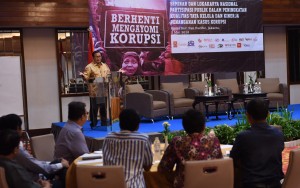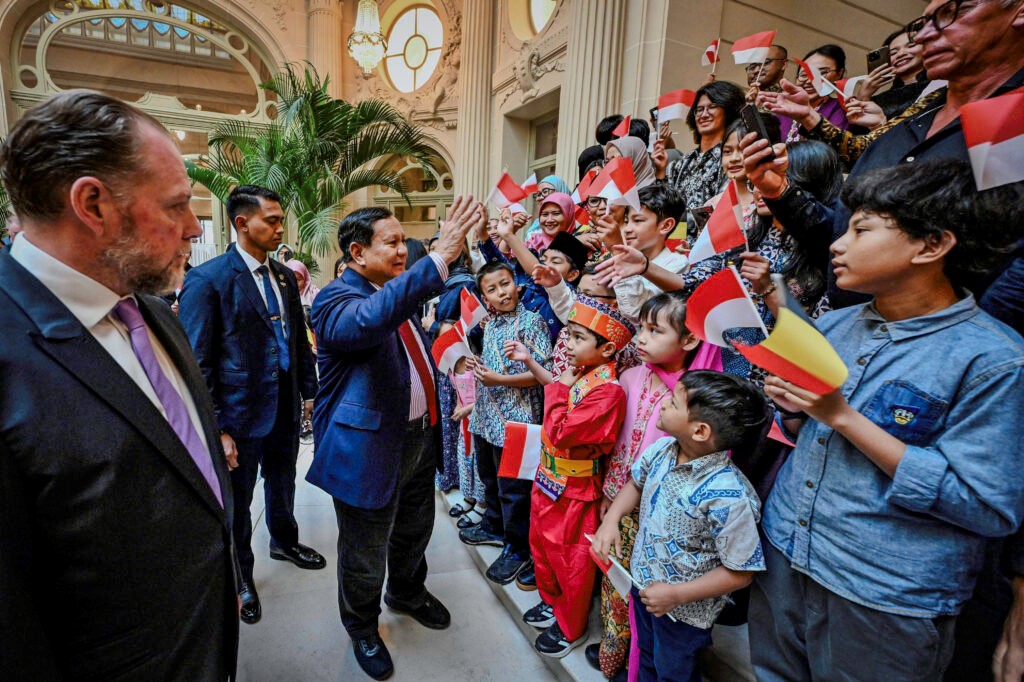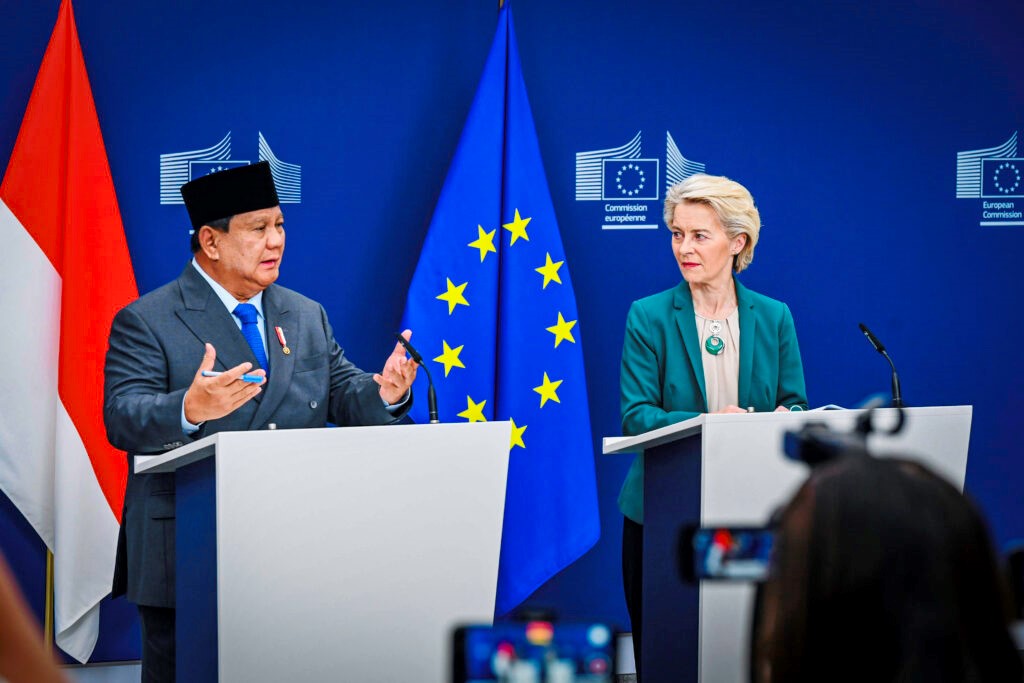Indonesia Already Overloaded with Anti-Corruption Law, Cabinet Secretary Says

Cabinet Secretary Pramono Anung delivers his remarks at a seminar held by the ICW on Tuesday (3/5) at Sari Pan Pacific Hotel in Jakarta
When it comes to regulations on anti-corruption, Indonesia has already been overloaded with them, according to Cabinet Secretary Pramomo Anung in his remarks at a seminar and workshop held by the Indonesia Corruption Watch (ICW) at Sari Pan Pacific Hotel, Jakarta, on Tuesday morning (3/5).
Therefore, he said that the Government does not have to add more or cut the regulations. However, he said that what we need now is how to make corruption a taboo according to cultures and religions.
Pramono also said that regulations or instruments to address corruption in Indonesia are already very good, proven by the arrest of public officials such as Chairman of the Constitutional Court or Minister of Religious Affairs.
According to him, in other countries, officials of the same rank are untouched.
It shows that actually, existing instruments are already very strong and the Governments performance in eradicating corruption is already quite good, Pramono said.
Nonetheless, Pramono considered that when it comes to disseminating the anti-corruption culture among the people, Indonesia has a long way to go.
He refers to an example of the 2014 General Election, in which five members of the House of Representatives (DPR) were voted although they were implicated in graft cases.
It shows that the people are ignorant about those who have ever been implicated in corruption cases and it happened because those candidates of the DPR members have money he added.
On that occasion, Pramono also highlighted the attitude of graft convicts when they were arrested by the Corruption Eradication Commission (KPK) or the Attorney General Office.
If we notice, on the first day he/she was arrested, they displayed sad and sorrowful look, but after 2-3 days, we can see that their face light, can already smile and wave hands to the camera. It shows that they are not ashamed, Pramono said.
Therefore, Pramono considered that it is important to give political education, that it is corruption that has hindered Indonesia from becoming a big nation.
Pramono also likened corruption with drug abuse and said that when the doers were caught, they might repent, be ashamed, or depressed but when they are seduced again, they will repeat the act.
This is the real phenomenon that all of us are facing together and its part of the auto critic for all of us and as I said, corruption is like drug abuse, Pramono said.
Pramono also said that the administration of President Joko Jokowi Widodo is currently focusing on two matters: de-regulation and building infrastructures.
According to Pramono, de-regulation is aimed at simplifying almost 42,000 laws and 3,000 regional laws.
He also said that the opportunities to commit corruption are related to the governance system, the system of public services, and the permit system.
Thus, he said, the Central Government has launched 12 economic policy packages, including by giving ease of doing business, which is now prioritized by the Government.
The point is transparency in managing the government and we can prevent corruption by building and providing good public service system. If only about laws, weve had enough. If only about people who are arrested and put to jail and become people show, its also enough Pramono said.
Therefore, Pramono asserted that there must be fundamental changes, be it in the system, culture, education process as well as in the implementation.
So in all honesty, I only have one conclusion. We must be whole-heartedly fighting against corruption and this should be our common spirit, Pramono concluded.
Also attending the seminar were representatives from the National Police’s Criminal Investigation Corps (Bareskrim), the Supreme Audit Agency (BPK), the Development and Finance Surveillance Agency (BPKP), the Corruption Eradication Commission (KPK), the Presidential Chief of Staff office, the Attorney General Office, the civil society group, and mass media.(FID/ES) (Naster/YM/EP)








